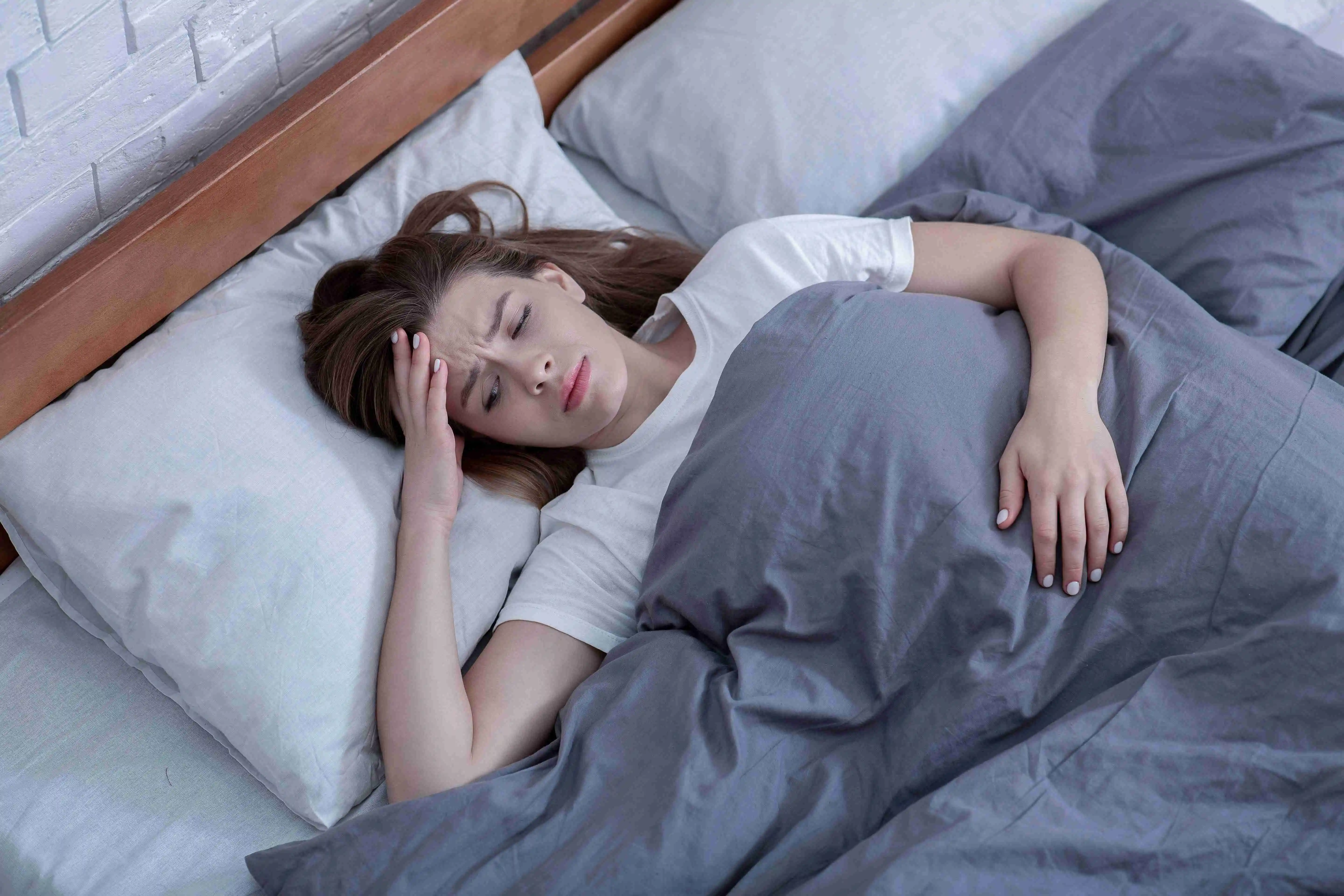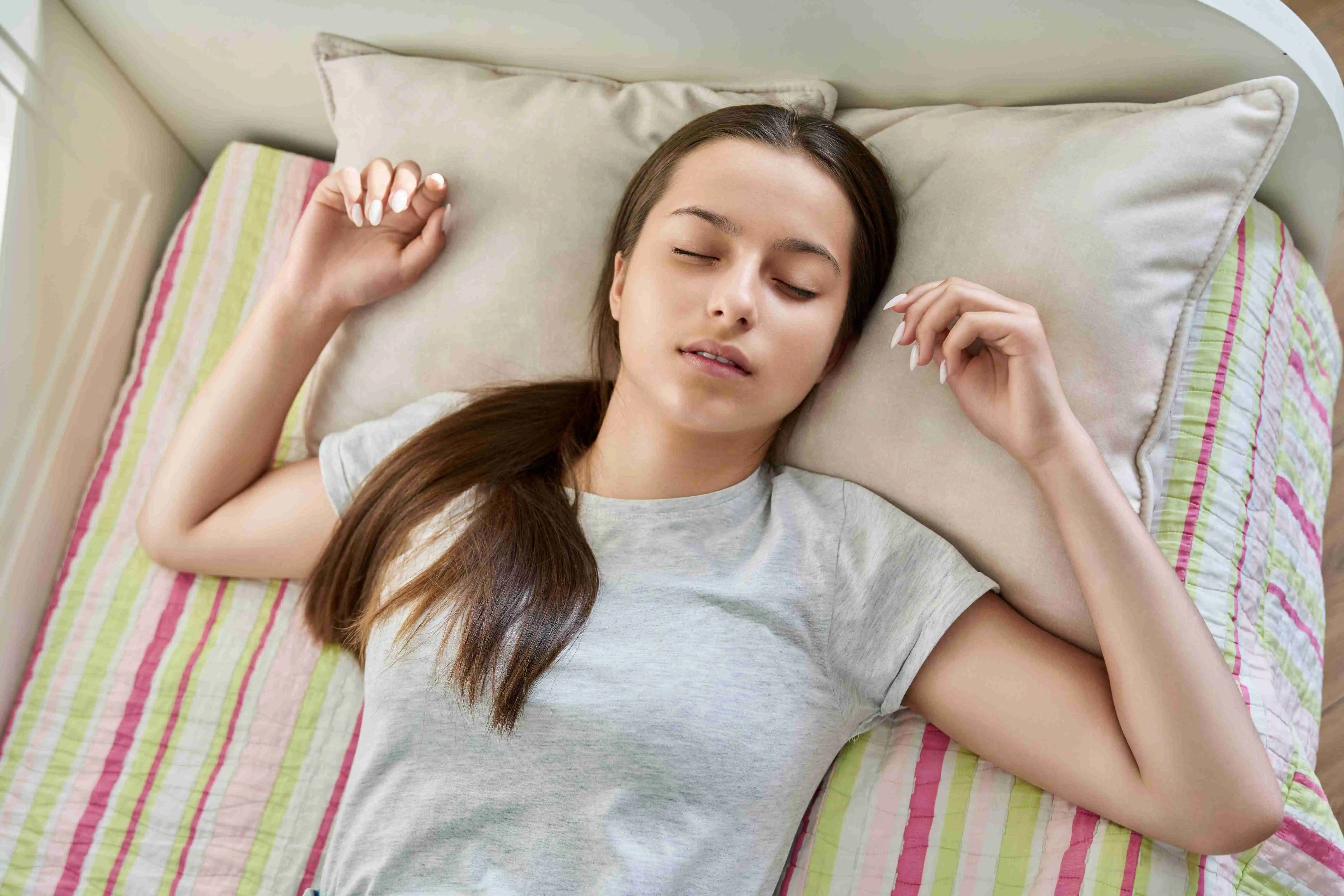
Sleep deprivation is a common problem that affects many individuals. The inability to fall asleep quickly can lead to a variety of health issues, including fatigue, decreased productivity, and even mood disorders.
If you struggle to fall asleep at night, addressing this issue and finding effective solutions is essential. In this article, we will explore various techniques and strategies to help you fall asleep fast and overcome sleep deprivation.
The Average Time It Takes To Fall Asleep
While there is no definitive answer as to how long it should take to fall asleep, experts suggest that it typically takes 10 to 20 minutes for a healthy individual to drift off into sleep. This timeframe is considered normal and indicates a healthy sleep onset latency.
Strategies to Fall Asleep Fast
In today's fast-paced world, many individuals struggle with falling asleep quickly at night. Fortunately, there are several ways to fall asleep fast, improve sleep quality, and promote fast and restful sleep.
Meditation
Meditation is an effective technique for falling asleep quickly. Meditation involves focusing the mind and eliminating distracting thoughts, which can help calm the body and it's considered the fastest way to fall asleep.
By practicing meditation before bed, individuals can create a relaxing atmosphere and clear their minds of any stress or anxiety that may be keeping them awake.
Military Sleep Method
The American military created this method to aid soldiers in falling asleep anywhere, at any time, and under any circumstances. The Military Method involves a specific sequence of muscle relaxation and mental visualization that allows the body to enter a state of deep relaxation.
Soldiers are encouraged to go to bed and wake up at the same time every day, regardless of their work or deployment schedule. This consistency helps regulate the body's internal clock and promotes better sleep quality.
Additionally, soldiers are advised to create a sleep-friendly environment by minimizing noise, light, and distractions. This may involve wearing earplugs, using eye masks, or investing in comfortable bedding.
4-7-8 Breathing Method
The 4-7-8 breathing method is another effective strategy to fall asleep fast. This technique involves inhaling through the nose for a count of 4, holding the breath for a count of 7, and exhaling through the mouth for a count of 8. This breathing pattern helps activate the body's relaxation response and reduces stress and tension.
By focusing on their breath and practicing this technique before bed, individuals can induce a state of relaxation that promotes fast and restful sleep.
Progressive Muscle Relaxation (PMR)
PMR involves tensing and then releasing different muscle groups in the body to promote relaxation. By systematically working through each muscle group, starting from the toes and moving up to the head, individuals can release tension and prepare their bodies for sleep. This technique not only helps with falling asleep faster but also improves overall sleep quality.
Guided Imagery
Guided imagery involves focusing on calming and soothing mental images to help relax the mind and body. By imagining peaceful scenes, such as a beach or a forest, individuals can redirect their thoughts away from stress and anxiety, allowing them to drift into a state of relaxation and eventually fall asleep.
Individuals can practice guided imagery by using audio recordings or by following a script that guides them through the visualization process.
Listening to Calm and Relaxing Music or Sounds
Soothing music can help to lower heart rate and blood pressure, creating a more relaxed state conducive to sleep. Individuals can create a peaceful environment that promotes deep sleep by selecting music or sounds specifically designed for relaxation, such as nature sounds or instrumental tracks.
It is important to choose music or sounds that are personally comforting and enjoyable, as this can enhance the relaxation response.
Sleep Issues and Disorders That Make Falling Asleep Harder

Sleep issues and disorders can make falling asleep a challenging task for many individuals. Some mental health and physical health issues can disrupt sleep patterns and impair the ability to fall asleep. It is important for individuals experiencing these difficulties to be aware of these issues so they can be able to combat them.
Mental Health Issues
- Circadian Rhythm Disorders: These disorders occur when our internal body clock, which regulates our sleep-wake cycle, is disrupted. This can happen due to factors such as jet lag, shift work, or irregular sleep schedules. Individuals with circadian rhythm disorders may find it difficult to fall asleep at the desired time, leading to sleep deprivation and daytime drowsiness.
- Insomnia: It is characterized by difficulty falling asleep, staying asleep, or both. Insomnia can result from a variety of factors, including stress, anxiety, depression, or specific medications. Individuals with insomnia often experience fatigue, lack of concentration, and irritability due to the lack of quality sleep.
- ADHD: Individuals with attention deficit hyperactivity disorder may have an overactive mind and find it challenging to relax and calm their thoughts before bedtime. This can lead to delayed sleep onset and restlessness during the night.
- Sleep Apnea: Sleep apnea is a sleep disorder characterized by pauses in breathing or shallow breaths during sleep. These pauses can last for a few seconds to a few minutes and can occur multiple times throughout the night. Sleep apnea can disrupt the normal sleep cycle and make falling asleep harder. Common symptoms of sleep apnea include loud snoring, gasping for air during sleep, morning headaches, and excessive daytime sleepiness.
- Narcolepsy: People with narcolepsy experience excessive daytime sleepiness and may fall asleep suddenly and uncontrollably during the day. This can make it challenging for them to fall asleep at night, as their sleep-wake patterns are disrupted. Narcolepsy can significantly impact a person's quality of life and may require medical intervention to manage symptoms.
- Somniphobia: Individuals with somniphobia may experience intense anxiety or panic attacks when trying to fall asleep. This fear can be rooted in various factors, such as a traumatic event associated with sleep or a fear of experiencing nightmares or sleep paralysis. The fear of falling asleep can create a vicious cycle where anxiety makes it harder to fall asleep, leading to more anxiety about the inability to sleep.
- Depression: Depression often disrupts the normal sleep-wake cycle, causing insomnia or excessive sleeping. Individuals with depression may struggle to fall asleep due to racing thoughts, feelings of sadness or hopelessness, and a lack of energy or motivation.
- Anxiety: Anxiety can lead to racing minds and worry-filled thoughts, making it challenging to relax and fall asleep. Both conditions may require treatment from mental health professionals, including therapy and medication, to help manage symptoms and improve sleep quality.
Physical Health Issues
- Pregnancy: Pregnancy brings about various physical and hormonal changes that can disrupt sleep patterns. Hormonal fluctuations, increased size of the abdomen, and discomfort due to the baby's movements can all contribute to difficulty falling asleep.
- Restless Legs Syndrome: RLS is characterized by an irresistible urge to move the legs, usually accompanied by uncomfortable sensations such as tingling or crawling. These symptoms tend to worsen during periods of rest or inactivity, making it difficult for individuals with RLS to settle down and fall asleep.
- Chronic Pain: Individuals suffering from conditions such as arthritis, fibromyalgia, or back pain often find it challenging to get comfortable in bed due to persistent discomfort. The pain can be exacerbated when lying down, making it difficult to relax and drift off into sleep.
- Breathing Issues: The interruption in breathing can cause individuals to wake up multiple times throughout the night, preventing them from entering deep, restorative stages of sleep. As a result, they may struggle with falling asleep initially and experience excessive daytime sleepiness.
Extra Tips to Help You Fall Asleep Faster

Falling asleep quickly can be a challenge for many individuals. Fortunately, several tips and techniques can help you fall asleep faster and improve the quality of your sleep.
Create a Relaxing Bedtime Routine
By going to bed and waking up at the same time every day, your body will develop a natural sleep-wake cycle, making it easier for you to fall asleep when it's time for bed.
Check how to create the Ideal Bedtime Routine.
Optimize Your Bedroom
This can be achieved by optimizing the temperature, noise level, and lighting in your bedroom. Keeping the temperature slightly cooler can promote better sleep.
Additionally, reducing noise disturbances by using earplugs or a white noise machine can help you fall asleep faster and stay asleep throughout the night.
Lastly, ensuring that your bedroom is dark and free from any bright lights or distractions can greatly improve your sleep quality.
Invest in Comfortable Bedding
A cozy mattress, soft pillows, and breathable sheets can make a significant difference in how quickly you fall asleep. Investing in high-quality bedding that suits your preferences can help create a comfortable sleep environment that promotes relaxation.
Check the Top-Rated mattresses, the Top-Rated Pillows, and the Top-Rated Sheets of 2024.
Follow a Consistent Sleep Schedule
Going to bed and waking up at the same time every day helps regulate your body's circadian rhythm, making it easier to fall asleep at night. Consistency is key when it comes to improving sleep quality.
By sticking to a regular sleep routine, your body will become accustomed to a certain pattern, making it easier for you to fall asleep quickly.
Limit Alcohol and Caffeine
Both alcohol and caffeine can disrupt your sleep patterns and make it difficult to fall asleep. Caffeine is a stimulant that can keep you awake, so it is best to avoid consuming it within a few hours of bedtime.
Alcohol, on the other hand, may make you feel drowsy initially, but it can interfere with the quality of your sleep, leading to frequent awakenings during the night.
Adjust Your Diet
Consuming a healthy diet that includes foods rich in tryptophan, such as turkey, chicken, nuts, and seeds, can help increase the production of serotonin and melatonin in the body, which are hormones that regulate sleep.
Check our article on Eating Before Bed.
Maintain Sleep Hygiene
Sleep hygiene refers to the practices and habits that contribute to a good night's sleep. Establishing a consistent bedtime routine can signal to your body that it is time to wind down and prepare for sleep.
Reduce Screen Time
The blue light emitted by electronic devices such as smartphones, tablets, and computers can interfere with the production of melatonin, a hormone that regulates sleep. Therefore, it is recommended to use electronic with mindfulness and avoid using these devices at least an hour before bedtime.
Exercise Regularly
Engaging in physical activity during the day can help to tire out your body, making it easier to fall asleep at night. Whether it's going for a jog, taking a yoga class, or even just going for a walk, any form of exercise can promote better sleep.
Check out the Best Exercises for Sleep.
Address Underlying Issues
It is crucial to address any underlying issues that may be interfering with your ability to fall asleep. Stress, anxiety, and certain medical conditions can all contribute to difficulty falling asleep. Taking steps to manage stress through relaxation techniques such as deep breathing exercises or meditation can be helpful.
FAQs
How to fall asleep fast?
There are several tips to fall asleep fast. First, establish a consistent sleep schedule by going to bed and waking up at the same time every day, even on weekends. This helps regulate your body's internal clock and promotes better sleep. Additionally, creating a relaxing bedtime routine that includes activities such as taking a warm bath, reading a book, or practicing relaxation techniques like deep breathing or meditation are some of the tricks to fall asleep fast.
Why do I struggle to sleep at night?
One common factor is stress. When we are stressed, our minds tend to be filled with racing thoughts, making it difficult to relax and fall asleep. Another reason could be poor sleep hygiene. It is important to identify the underlying causes and adopt healthy sleep habits to improve the quality of sleep.
Can mental health prevent me from falling asleep quickly?
Yes, mental health can indeed play a significant role in preventing someone from falling asleep quickly. Mental health conditions such as anxiety, depression, and stress can all contribute to difficulties falling asleep. When our minds are preoccupied with racing thoughts, worries, or negative emotions, it becomes challenging to relax and enter a state of sleep.
What are the dangers of sleep deprivation?
Sleep deprivation can have serious consequences for both our physical and mental health and it can be the cause of multiple sleep disorders. One of the primary dangers of sleep deprivation is impaired cognitive function. Lack of sleep can lead to difficulties with concentration, memory, and decision-making. This can have a significant impact on our daily lives, affecting our performance at work or school.
Is struggling to fall asleep a symptom of insomnia?
Struggling to fall asleep can indeed be a symptom of insomnia. When someone experiences difficulty falling asleep, despite feeling tired, it can be a sign of insomnia. Other symptoms, such as waking up frequently during the night, waking up too early in the morning, or feeling exhausted after sleeping, can accompany this struggle to fall asleep.
Can nighttime exercise interfere with sleep quality?
It is important to consider individual factors and preferences. For some individuals, nighttime exercise may increase alertness and make it difficult to fall asleep. However, for others, it may help to reduce stress and promote more restful sleep. Check the Best Time to Exercise for Better Sleep.
Conclusion
Falling asleep quickly can greatly improve the quality of your sleep and overall well-being. By following the tips on how to fall asleep fast, you can increase your chances of falling asleep faster and enjoying a restful night's sleep.
Consistency is key when it comes to establishing healthy sleep habits. So, make sure to implement these strategies consistently to reap the benefits of a good night's rest.
Jessica H.
Jessica is a reviewer, writer, and sleep enthusiast at Sleepiverse. Jessica graduated with her master's degree in Nursing research and education. She is a registered nurse and currently works in the Intensive Care Unit. Since becoming a nurse, Jessica has worked the night shift, which means a disrupted sleep schedule. Knowing she needed to function at her best while caring for patients at night, she spent a lot of time researching how to sleep well with a difficult schedule.


